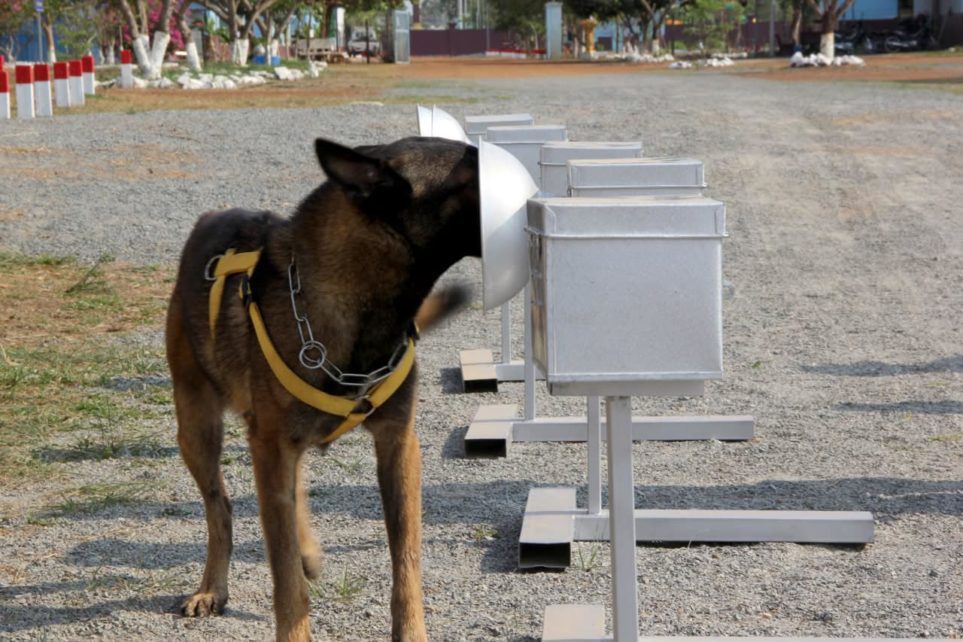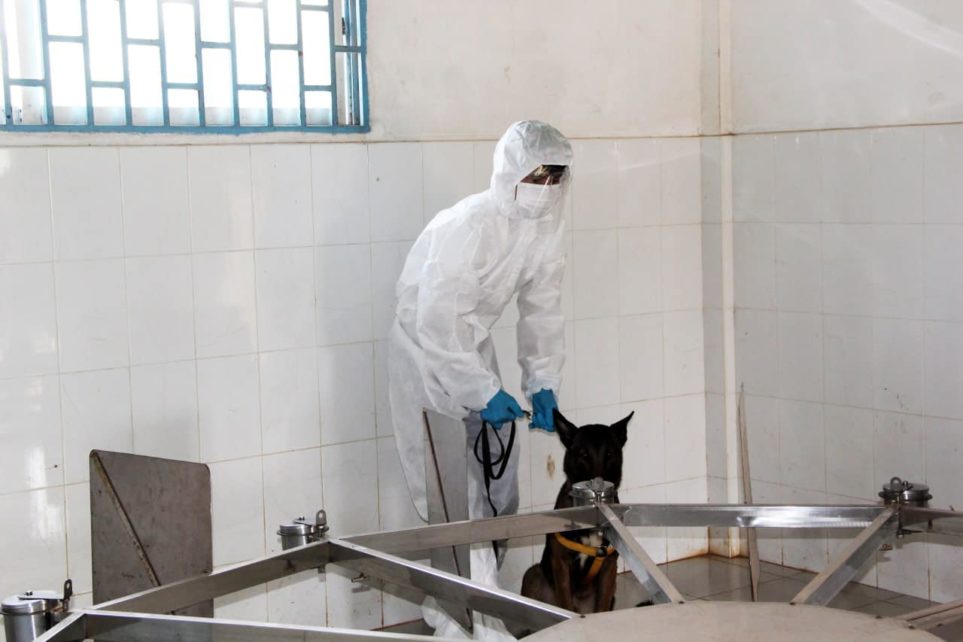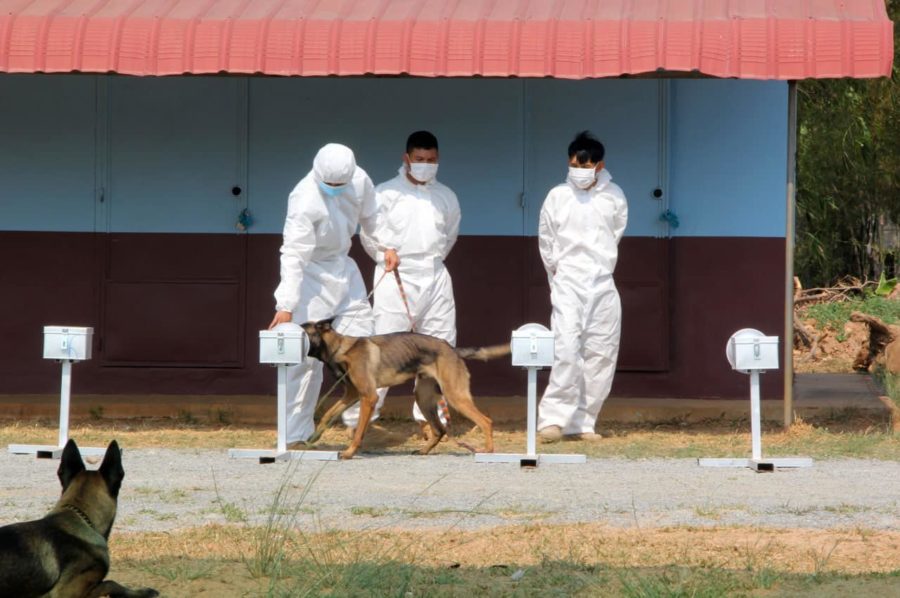Five demining dogs who have finished basic training are primed to start learning to sniff out Covid-19, even in crowds, the Cambodian Mine Action Center says.
Thanks to dogs’ keen sense of smell, researchers around the world have been able to train dogs to detect the disease in sweat samples with significant accuracy, according to science journal Nature.
One test at an airport in Lebanon found 100 percent accuracy for negative samples and 92 percent for positive samples, the Nature article says. But most of the research is yet to be peer reviewed, and some question how much the procedure can be scaled up.
Mine Action Center director-general Heng Ratana said on Friday that the center had picked out five dogs who had already finished basic training for the Covid-19 work, and they would soon be joined by five others.
“For the [first] five dogs, once there are safety guarantees and sniffing equipment, we can do it immediately,” Ratana said.
The center has 150 demining dogs working in the field, plus 50 newborn puppies at its training center in Kampong Chhnang, Ratana said.
He said the dogs’ training consisted of two steps: a basic course that takes between six to eight months — which the first five dogs have already completed — and a specialized Covid-19 training that should take three to four months, though the exact protocol for this is still being worked out in cooperation with researchers.
“We have trained them for the first technical step, but haven’t yet trained them with Covid patients and clarified the smells. … We are compiling some procedural documents to establish clear protocols for this investigation and research,” he said.
“When we have the protocols and [Covid-19] samples to use for the dogs’ training, it will take three or four months, and then these dogs can go fulfill the work if there is no obstacle.”
According to Ratana, other countries have considered Covid-19-sniffing dogs to be especially promising for checking on crowded situations, like sporting competitions or airports.
“They help because it is quick, in a simple way: For example, for a sack of rice that has a few rocks inside, [conventionally] we must take one grain out of the sack at a time, but for the dogs, they search directly for the rocks, so it means that it could help speed up our work lot,” he said.
Experts from Australia, Switzerland and Germany were working with the center on the initiative, Ratana said.
Amid the country’s worst outbreak to date, Cambodia’s Covid-19 testing laboratories are under strain, drawing on “surge capacity” to conduct about 7,000 tests a day, significantly above “sustainable testing capacity” of about 4,000 tests a day, the World Health Organization said this week.















